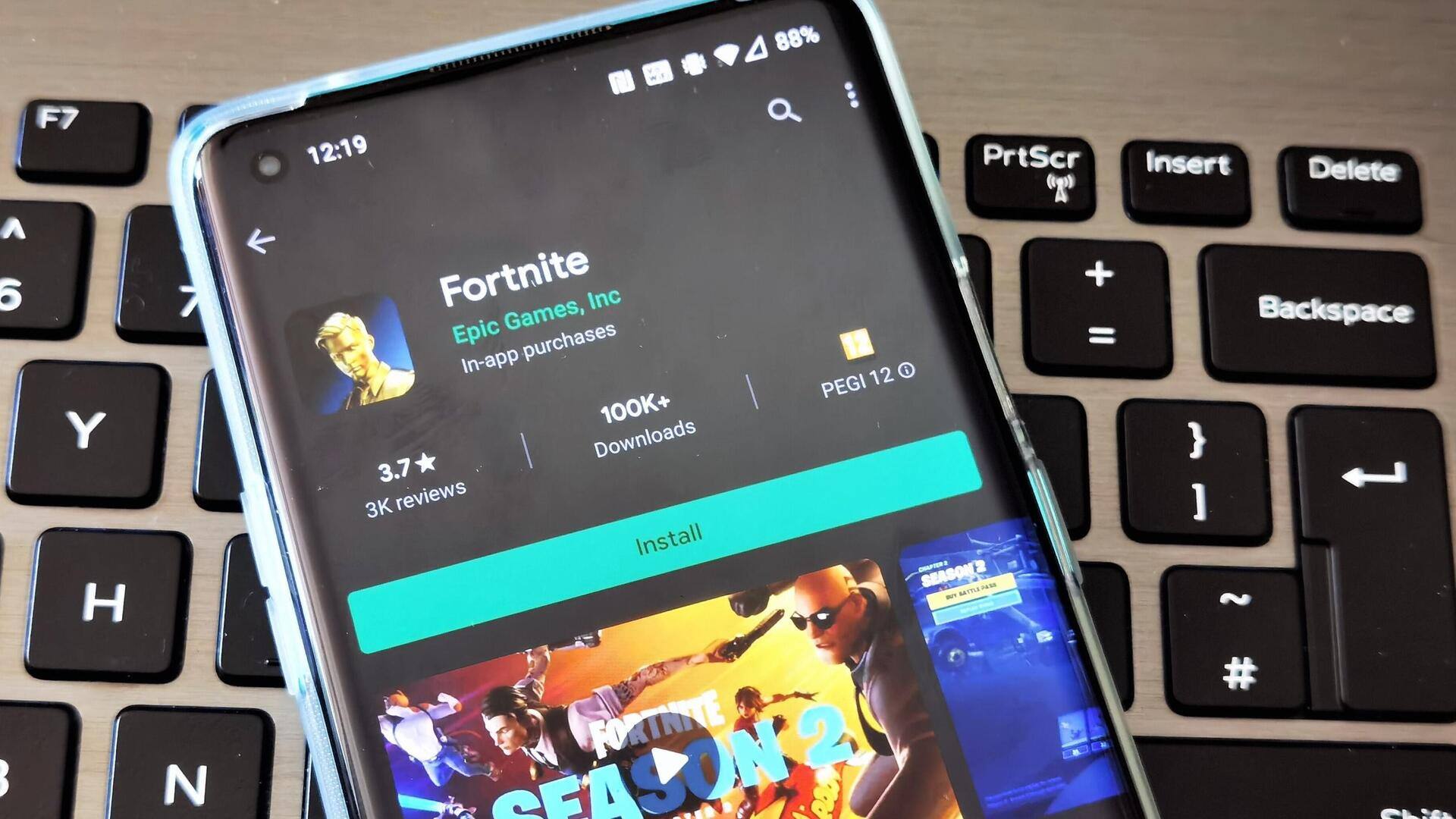
Google offered Epic $147mn to bring Fortnite to Play Store
What's the story
Recently revealed court documents show that Google proposed a whopping $147 million deal to Epic Games, for the launch of the widely popular title Fortnite, on the Google Play Store.
The deal, which Epic Games ultimately turned down, was intended to deter a possible "contagion" of well-known apps circumventing Android's official store and Google's in-app purchase fees.
The ongoing legal tussle between these two titans highlights the power dynamics and varying approaches in the gaming industry.
Details
Incremental funding over three years
Purnima Kochikar, Google's VP of Play partnerships, verified that the $147 million deal would have been distributed over three years as "incremental funding" to Epic Games.
Google projected that the direct revenue loss due to Fortnite's absence from the Play Store could amount to $130 million, with a potential downstream effect of up to $550 million if other developers followed Epic's example.
Despite the enticing financial incentives, Epic Games rejected the proposal.
What Next?
Epic Games' pursuit of alternative distribution methods
Epic Games has consistently sought alternative distribution channels for its blockbuster game Fortnite.
In 2018, the company released Fortnite on Android directly through its website, bypassing the Play Store and its associated commission fees.
However, in 2020, Epic conceded and introduced Fortnite to the Play Store, attributing the decision to "scary, repetitive security pop-ups" and other factors that placed it at a significant disadvantage.
Insights
Antitrust lawsuit filed by Epic Games
In a subsequent antitrust lawsuit filed in 2020, Epic Games claimed that its initial choice to avoid the Play Store sent Google into a frenzy.
The company referred to internal documents alleging that Google was concerned about a "contagion risk" if other game developers emulated Epic's strategy.
Epic also asserted that Google tried to prevent this by offering special perks or even purchasing Epic. The lawsuit is currently being debated before a jury.
Facts
Clash of ideologies and strategies
The conflict between Google and Epic Games extends beyond profits, representing a clash of ideologies and tactics.
While Google aims to assert dominance in the gaming sector through exclusive agreements, Epic Games is concentrating on alternative distribution methods, including its own Epic Games Store.
As the legal battle progresses, it will be fascinating to observe how these two industry heavyweights navigate the constantly evolving gaming landscape.